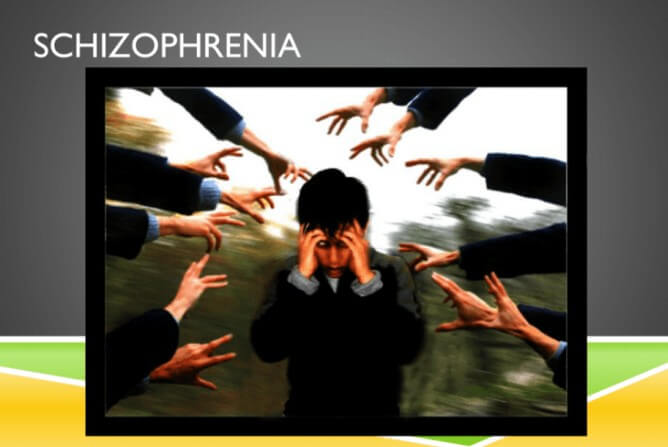Schizophrenia is more than just a mental illness. It’s a misunderstood reality that affects millions of lives globally. Madness affects both health and life—changing careers, relationships, and even family dynamics. Even though we know more about mental health now, schizophrenia is still misunderstood and often kept in silence.
Today, let’s pull back the curtain and take a deeper look at the human side of schizophrenia. Let’s look at how it impacts physical health, mental well-being, and finances, and how hope, support, and awareness can make a difference.
What Is Schizophrenia?
Schizophrenia is a chronic and severe mental disorder that alters the way a person thinks, feels, and behaves. People with Madness often seem like they have lost touch with reality. Symptoms may include hallucinations, delusions, disorganized speech, and an impaired ability to function in daily life.
It typically appears in late adolescence or early adulthood. While it affects about 1 in 100 people, its impact reaches far beyond just the individual. Families, caregivers, employers, and healthcare systems all bear part of the burden.
But Schizophrenic disorder is not a death sentence—not for dreams, not for careers, not for happiness. With the right treatment, support, and care, people with Madness can live fulfilling lives.
Schizophrenia symptoms:
Schizophrenia symptoms include a mix of positive, negative, and cognitive signs. Positive symptoms, like hallucinations and delusions, involve distorted perceptions of reality. Negative symptoms, such as emotional flatness or difficulty in social interactions, can affect daily functioning.
Cognitive symptoms may include memory problems, trouble focusing, and impaired decision-making. These symptoms can vary in severity and impact, but with early treatment and support, individuals can manage the condition.
The Hidden Health Struggles
Schizophrenia is a mental illness, but its effects on physical health are often ignored. People with schizophrenic disorder have a higher risk of conditions like diabetes, heart disease, and obesity. Want to know more about physical health? Visit our website.
This is due to a combination of factors:
- Medication side effects: Antipsychotic medications help reduce symptoms, but they can also cause weight gain, blood sugar issues, and high cholesterol.
- Lifestyle factors: Many patients find it hard to keep up with exercise, eat healthy, and go for regular doctor checkups. Would you like to keep it this straightforward or add more detail?
- Healthcare disparities: Due to misinformation, bias, and judgment, people with schizophrenic disorder frequently do not receive the same physical treatment as others.
The result? Life expectancy among individuals with Schizophrenic disorder is reduced by 10 to 25 years compared to the general population.
That’s why it’s important to treat madness as more than just a mental health issue. People need care for their mind, body, and emotions all together.
The Wealth Gap: A Silent Crisis

Mental illness and poverty are often interconnected, and Schizophrenic disorder lies at the heart of this cycle. The financial cost of schizophrenia is staggering—for individuals, families, and economies.
Personal Financial Burden
The ability to hold a job, manage finances, or pursue education is often compromised in people living with madness. Many find themselves dependent on family, disability benefits, or social support systems. This leads to:
- Lower income potential
- Limited access to housing
- Poor financial literacy
- Debt accumulation
- Homelessness in extreme cases
Even when someone is in remission or well-managed, the stigma around Schizophrenic disorder can be a barrier to employment. Many employers still harbor misconceptions, leading to discrimination and missed opportunities.
Family Impact
Families of individuals with schizophrenia often become full-time caregivers. This leads to emotional burnout and financial strain, especially if a parent or sibling must reduce work hours or quit a job entirely.
Societal Costs
From emergency room visits to long-term care, the cost of untreated or poorly managed Schizophrenic disorder runs deep. This illness costs governments and healthcare systems billions of dollars every year. Prevention, early intervention, and community support services can reduce this burden significantly.
The Power of Financial Empowerment in Mental Health
Although the connection between wealth and mental health might seem indirect, it is deeply intertwined. Financial stress is both a cause and a consequence of poor mental health. People with enough money are more likely to get diagnosed early, get good treatment, and keep up with their care.
For people with madness, financial empowerment can be transformative.
Income Support and Benefits
Help with disability benefits, housing, and food can make life more stable. This support lets people focus on getting better, not just getting by.
Financial Education
Programs that teach how to manage money and get ready for part-time work can help people feel more confident and independent. It’s not about creating millionaires; it’s about restoring dignity and agency.
Employment Support
Job programs made for people with mental illness can help them move from diagnosis to working again.”
Would you like it to sound more hopeful or more formal? These programs help with resume building, interview preparation, and ongoing workplace support.
Reimagining Wealth: Beyond Money
When we speak of wealth in the context of schizophrenia, we must broaden the definition. Wealth is not just measured in dollars but in quality of life, access to care, and social inclusion.
Someone with Schizophrenic disorder who has support, treatment, a home, and purpose is richer than someone with lots of money but no peace of mind.
Mental health equity means giving everyone a fair chance to live a good, stable life, no matter their diagnosis.
Hope, Healing, and Human Stories
Behind every diagnosis of schizophrenia is a human story, one of struggle, but also of resilience. Many individuals with Schizophrenic disorder go on to become artists, writers, educators, and advocates. They contribute to society in unique and profound ways.
What makes the difference? Often, it’s a combination of early intervention, consistent treatment, and a strong support network.
People heal when families help each other, communities care, and employers see what someone can do.
Would you like it to sound more emotional or more motivational?
Would you like it to include the word “recovery” or keep it this straightforward?
Mental health isn’t a solo journey; it’s a shared path that requires empathy, patience, and action.
Steps Toward Change

To build a world where people with schizophrenia aren’t pushed aside, we need to start with awareness and keep going from there. Here are practical steps we can all take to make a difference:
1. Educate Yourself and Others
Learn about the realities of madness beyond stereotypes. Share that knowledge in your circles. The more we normalize mental health conversations, the less room stigma has to grow.
2. Advocate for Mental Health Funding
Support policies that increase access to affordable, quality mental health care. Push for integrated systems where mental and physical health are treated with equal importance.
3. Support Local Programs
Help people with schizophrenia by giving your time, money, or support to groups that offer homes, jobs, or friendly help.
4. Offer Compassion
If someone in your life lives with Schizophrenic disorder, listen without judgment. Your belief in their potential might be the catalyst for their recovery.
Final Thoughts
Schizophrenia doesn’t just affect the mind. It impacts every part of a person’s life, from physical health to finances. But it doesn’t have to be a life sentence of limitation. With awareness, access, and empathy, we can turn the tide.
Supporting mental health helps not just one person, but also families, communities, and even the economy. That is the true wealth of a society.
In the end, health and wealth aren’t opposites; they are interdependent. And for those living with Schizophrenic disorder, restoring one can often mean reclaiming the other.
You should read: Transform Your Body: The Power of AnyFitness with Proven Workouts and Life-Changing Results in 2025















2 thoughts on “Schizophrenia: Building a Balanced Life for Success and Well-being in 2025”